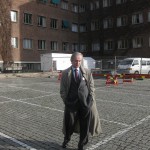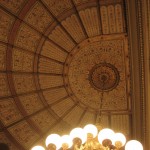Happy birthday, University of Sussex
Friday, November 4th, 2011 Fred Gray (a speaker on the 29th November forum) has edited a new book, ‘Making the future. A history of the University of Sussex’. This beautifully-illustrated account of the first fifty years of the university (1961-2011) consists of chapters by almost 70 different authors. Here are the voices, and the varied and well-presented images, of former and current staff and students. Their narratives are framed by Fred Gray’s introductions his overview and his account of continuing education (the field in which he became a professor).
Fred Gray (a speaker on the 29th November forum) has edited a new book, ‘Making the future. A history of the University of Sussex’. This beautifully-illustrated account of the first fifty years of the university (1961-2011) consists of chapters by almost 70 different authors. Here are the voices, and the varied and well-presented images, of former and current staff and students. Their narratives are framed by Fred Gray’s introductions his overview and his account of continuing education (the field in which he became a professor). The theme of the liberalism of the sixties and seventies runs through the book as does the engagement with the distinctive and original curriculum. There are some parallels to be made with the OU, the influence of Asa Briggs on both places being one of them and the ‘early leavers’ scheme is another. One might also compare it to the University of Twente (founded 1961 as the first campus university in the Netherlands it insisted that engineers study social sciences) and it also influenced Kent, Lancaster, UEA, Stirling, Essex, York and Warwick. (more…)




